
Levi Eshkol,born Levi Yitzhak Shkolnik,was an Israeli statesman who served as the third Prime Minister of Israel from 1963 until his death from a heart attack in 1969. A founder of the Israeli Labor Party,he served in numerous senior roles,including Minister of Defense (1963–1967) and Minister of Finance (1952–1963).

Amos Oz was an Israeli writer,novelist,journalist,and intellectual. He was also a professor of Hebrew literature at Ben-Gurion University of the Negev. From 1967 onwards,Oz was a prominent advocate of a two-state solution to the Israeli–Palestinian conflict.

Yehoshua Sobol,sometimes written Joshua Sobol,is an Israeli playwright,writer,and theatre director.
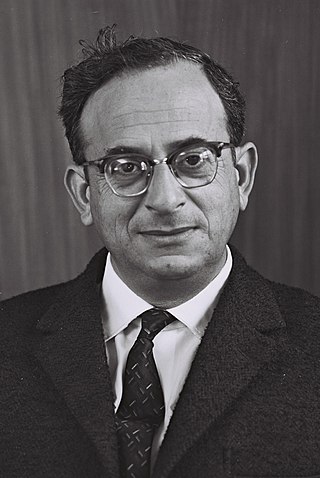
Yitzhak Rachamim Navon was an Israeli politician,diplomat,playwright,and author. He served as the fifth President of Israel between 1978 and 1983 as a member of the centre-left Alignment party. He was the first Israeli president born in Jerusalem and the first Sephardi Jew to serve in that office.

Gila Almagor Agmon is an Israeli actress,film star,and author. In Israel,she is known as "queen of the Israeli cinema and theatre".
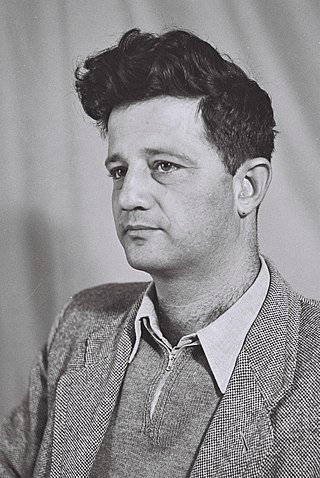
Yizhar Smilansky,known by his pen name S. Yizhar,was an Israeli writer and politician. Widely regarded as one of the preeminent figures in Israeli literature,he was awarded the Israel Prize in 1959 for fine literature. He was also awarded several other prizes of national distinction. In his political life,Yizhar served in the Knesset under Mapai almost continuously from 1949–1967.

Aluf Amos Yadlin is a former general in the Israeli Air Force (IAF),Israel Defense Forces military attachéto Washington,D.C.,and head of the IDF Military Intelligence Directorate (Aman).
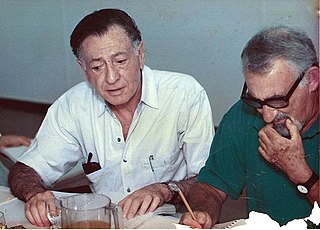
Nissim Aloni was an Israeli playwright and translator.
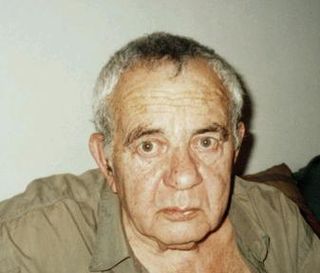
Amos Kenan,also Amos Keinan, was an Israeli columnist,painter,sculptor,playwright and novelist.
Hanna Yablonka is an Israeli historian and scholar. Born in Tel Aviv,she is a Professor of Holocaust Studies at Ben-Gurion University of the Negev and staff historian for the Ghetto Fighters' House.

Hanna Maron was a German-born Israeli actress,comedian and theater personality. She held the world record for the longest career in theater.

Tuvia Friling is an Emeritus professor at Ben-Gurion University of the Negev,Israel. Previously he served as a senior researcher at the Ben-Gurion Research Institute for the Study of Israel and Zionism and a lecturer at the Israel Studies Program both at Ben-Gurion University of the Negev.

An Israeli Love Story is a play translated from the Hebrew play Sippur Ahava Eretz Yisraeli. It premiered in 2008 and still runs in repertory at Tel Aviv's Givatayim Theater and Cameri Theater.
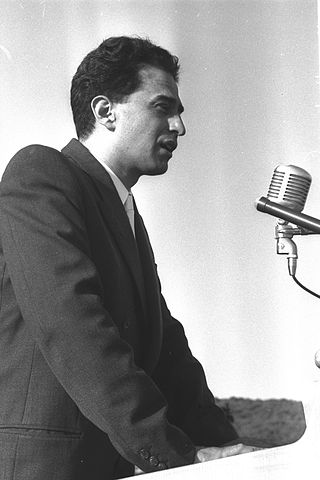
Amos de-Shalit was an Israeli nuclear physicist and Israel Prize laureate.

Dan Caspi was a lecturer at the Communication Studies Department of Ben-Gurion University of the Negev,Beersheba,Israel.

Avner Faingulernt is an Israeli independent filmmaker. He is Professor and the dean of the Faculty of Arts,Kibbutzim College in Tel Aviv. He was chair of the School of Audio &Visual Arts,Sapir Academic College,founder of Cinema South Festival in Sderot,chief editor of the annual "Cinema South Notebooks" and "Cinema South The Curator Book". Faingulernt was also a visiting professor at Columbia University in New York,the University of Haifa,the Film and TV School of the Academy of Performing Arts in Prague and at Filmakademie Baden Württemberg. He is an educator and a peace activist.

Avi Issacharoff is an Israeli journalist,known for his focus on Palestinian affairs. He is a Middle East commentator for The Times of Israel and its sister news outlet Walla!,and the Palestinian and Arab Affairs Correspondent for Haaretz. Issacharoff is known as one of the creators of the TV-series Fauda.
Roni Taharlev is an Israeli figurative painter.
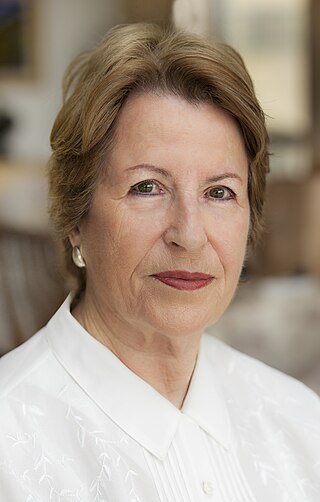
Dvora Hacohen is an Israeli historian and professor in the Department of Land of Israel Studies and Archaeology at Bar-Ilan University in Israel. Her research interests are in the development of Israeli society.

Jacob (Yankele),Eugen,Jean Salomon was a member of the Haganah and Palmach. He commanded the Palmach's Fourth Battalion and served as commander of the Haganah in Eastern Europe.


















